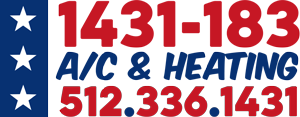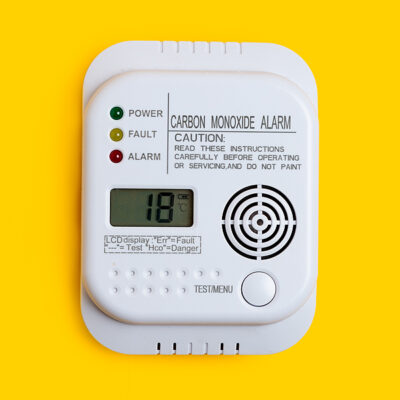You shouldn’t use your furnace if it has a cracked heat exchanger. Aside from affecting your furnace’s heating performance, it can be very dangerous to you and your family.
An Introduction to Heat Exchangers
Heat exchangers are devices that transfer or “exchange” heat from a source to a destination. There are many different types of heat exchangers. Automotive radiators, for instance, are heat exchangers.
Cars, trucks, vans, SUVs and other automobiles feature a radiator as part of their respective cooling system. As liquid coolant flows through a vehicle’s cooling system, the radiator will transfer heat to the exterior.
Gas furnaces have a heat exchanger as well. They serve the same purpose of transferring heat, but they feature a different design than automotive radiators. Gas furnaces consist of hollow tube-like coils through which flue gases flow.
As furnaces burn gas and air, they will create hot flue gases. The hot flue gases will then travel through a heat exchanger. A blower will circulate air over the heat exchanger to absorb heat from it, thus creating warm air for the ductwork.
Carbon Monoxide Buildup
A cracked heat exchanger can cause carbon monoxide to build up inside your home. Gas furnaces work by creating heat in the form of hot flue gases. In a normal working furnace, the hot flue gases will remain confined to the heat exchanger. They will travel through the heat exchanger before exiting the furnace and home via a flue pipe.
Even if it’s a small hairline crack, flue gases will leak out of the heat exchanger. Carbon monoxide is a flue gas. Any carbon-based fuel that experiences an incomplete combustion process will release carbon monoxide.
Carbon monoxide, of course, is toxic to humans and many animals. According to the U.S. Centers for Disease Control and Prevention (CDC), over 50,000 Americans visit hospital emergency rooms each year due to accidental inhalation of carbon monoxide.
What to Do If Your Furnace Has a Cracked Heat Exchanger
If your furnace has a cracked heat exchanger, turn off the gas to it and contact a heating, ventilation, and cooling (HVAC) company immediately. Most furnaces have an adjustable valve on the side. Turning this valve counterclockwise will interrupt the gas supply to it.
You should also check to ensure that your home is equipped with a carbon monoxide detector. If flue gases continue to leak out of your furnace’s heat exchanger, the detectors will trigger an audible alarm.
If you are experiencing a problem with your air conditioning or heating call us at 512-336-1431 to schedule an appointment. We’ll be glad to come out and take a look at the issue.
1431-183 A/C & Heating proudly serves Round Rock, Georgetown, Cedar Park, Pflugerville, Leander, Liberty Hill, and North Austin.

